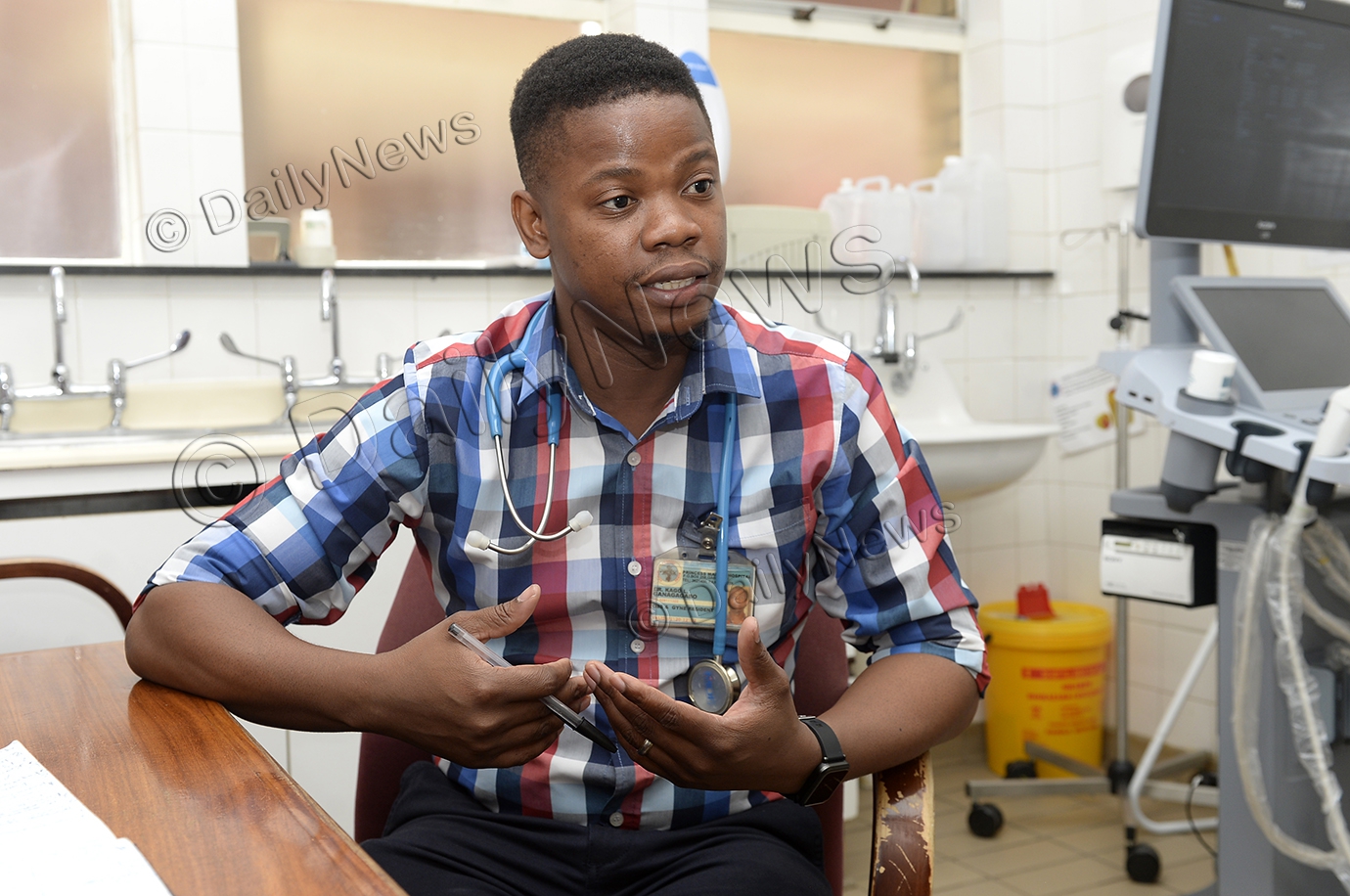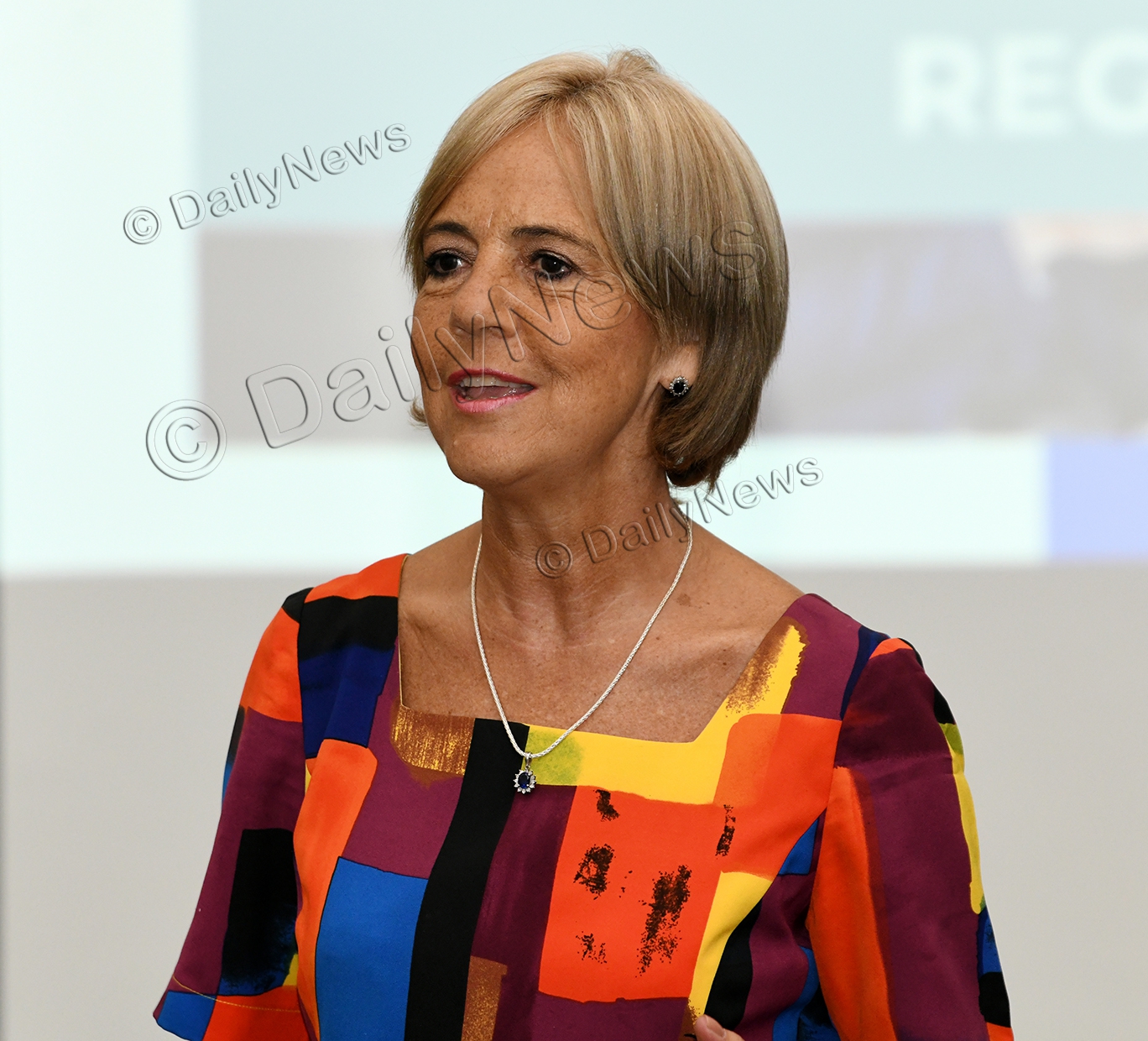Understanding menopause
27 Mar 2024
One of the physiological changes every middle-aged woman eventually experiences is menopause. However, there is still limited knowledge about it, as stated by Dr Kago Ganagagabo, an Obstetrician and Gynaecologist specialist at Princess Marina Hospital.
Dr Ganagagabo explained that menopause is a process that typically occurs around the age of 51 years. It is marked by a reduction in the levels of hormones called estrogen and progesterone, ultimately leading to the cessation of menstruation. The process is considered complete after one year without menstruating.
Before menopause, there is a stage known as perimenopause, and after menopause, there is the post-menopausal period.
During the perimenopausal period, women may experience various symptoms such as reduced frequency of menstruation before it stops altogether.
Symptoms may include hot flashes, intense warmth, flushing and perspiration, sleeping problems like insomnia, decreased interest in sex, forgetfulness, mood swings like irritability, depression, and anxiety.
Dr Ganagagabo mentioned that hot flushes are common during menopause and can last for up to 10 years or more.
While hot flashes are generally harmless, they can disrupt daily activities. Dr Ganagagabo suggested that lifestyle adjustments and prescribed medications could help manage these symptoms.
Some lifestyle changes include staying in a cool environment, using a fan, and consuming cold fluids to regulate body temperature. In addition to lifestyle adjustments, modern medicine offers hormone-balancing treatments and hormone replacement therapy in the form of pills to address menopausal symptoms.
Dr Ganagagabo said this included oestrogen replacement therapy, which improves hot flashes in 85 per cent of the women. The therapy, however, he said puts women at risk of breast, and uterine cancer when on hormone replacement therapy. Dr Ganagagabo said although menopause was a universal midlife transition for women, a lot about menopause remain poorly understood.
He therefore appealed to women who were going through perimenopause to get medical attention saying they may be helped to manage associated symptoms, saying if the symptoms were extreme and left unattended, it could lead depression and change in the quality of life.
Dr Ganagagabo also encouraged educational institutions, and medical care providers to cooperate in educating women about menopause, its symptoms, long-term consequences and treatment options.
He said the combined effort by educational programmes would help in increasing public awareness, adding that it may result in significant improvement in both life expectancy and quality of life of women in future.
He also called on Batswana to be open about these issue that were regarded taboo subjects, also calling on women to learn about menopause.
Sharing the same sentiments, the CEO of Business Engage, Ms Colleen Larsen said it was important that women understand menopausal transition, saying it would enhance comfort and wellbeing during menopausal symptoms for strengthening relationships with colleagues, and family adding that would also create a more comfortable work environment.
Ms Larsen, based in South Africa, said people should discuss issues regarding menopause saying it was a step towards breaking down barriers the silence and fostering open dialogue around a natural and significant phase in a woman’s life. She said too often, discussions surrounding menopause were shrouded in stigma with discomfort, leading to a lack of awareness and understanding.
“Understand that menopause is a universal experience for women,” she said, adding that it was time to dispel myths,” she said.
Ms Larsen also called for menopause awareness support at workplaces.
“In South Africa alone, menopause affects over 10 million women,” she said, therefore saying it was important that for Africa to attain universal health, it should have mental health support and education on menopause at different life stages.
She said that South Africa, they have menomove that stands at the forefront of a paradigm shift within the corporate landscape, redefining workplace cultures through a targeted focus.
Ministry of Health spokesperson, Dr Christopher Nyanga said the ministry was raising awareness on menopause and its impact on women at individual and societal levels. Dr Nyanga said those in need of services were linked to the health care facilities for intervention, adding that at present, the Sexual and Reproductive Health Division, was on course to review the overarching Sexual and Reproductive Health (SRH) policy such that it extensively provides guidance on comprehensive programming for SRH issues including infertility, menopause, among others as part of Universal Health Coverage.
Furthermore he said they also promote the inclusion of training on menopause and treatment options in pre-service curricula for health workers in preparation for in-service including the improved provision of these services in the work place; and emphasised a life course approach to reproductive health and well-being (including sexual health), by ensuring that women had access to appropriate health information and services to promote healthy ageing and a high quality of life before, during and after menopause. She called on the workforce to create and support their employees.
Ms Pinile Gabathusi, in her early 50s, highlighted the challenges women face during menopause, emphasising that women experiencing symptoms may have a higher risk of missing work due to issues such as hot flashes.
She noted that menopausal symptoms can impact the overall quality of life, leading to mood swings and potential workplace challenges with some older women feeling irritable in office environments.
Despite these difficulties, Gabathusi encouraged women to maintain professionalism in the workplace.
Additionally, Ms Canah Kesebone, also in the menopausal age group, pointed out that many Botswana women tend to avoid seeking medical help during the perimenopause stage due to cultural beliefs that menopause is a natural phase that doesn’t require medical intervention. She advocated for the use of modern medicine to help manage the symptoms effectively.
On the other hand, Ms Dinah Ntshekang, at 55, viewed menopause as a liberation from menstrual cycles and a way to save costs associated with sanitary products.
She expressed relief at no longer needing to worry about menstrual accidents. Similarly, Ms Mpho Masinda, aged 54, shared her experience of using hand fans to mitigate hot flashes. She found that carrying multiple fans ensured she was always prepared, even in public settings like church.
Ms Masinda believed that not all women require medical treatment for menopausal symptoms and that lifestyle adjustments and coping mechanisms could help alleviate the challenges associated with menopause. ends
Source : BOPA
Author : Lesedi Thatayamodimo
Location : GABORONE
Event : Interview
Date : 27 Mar 2024







